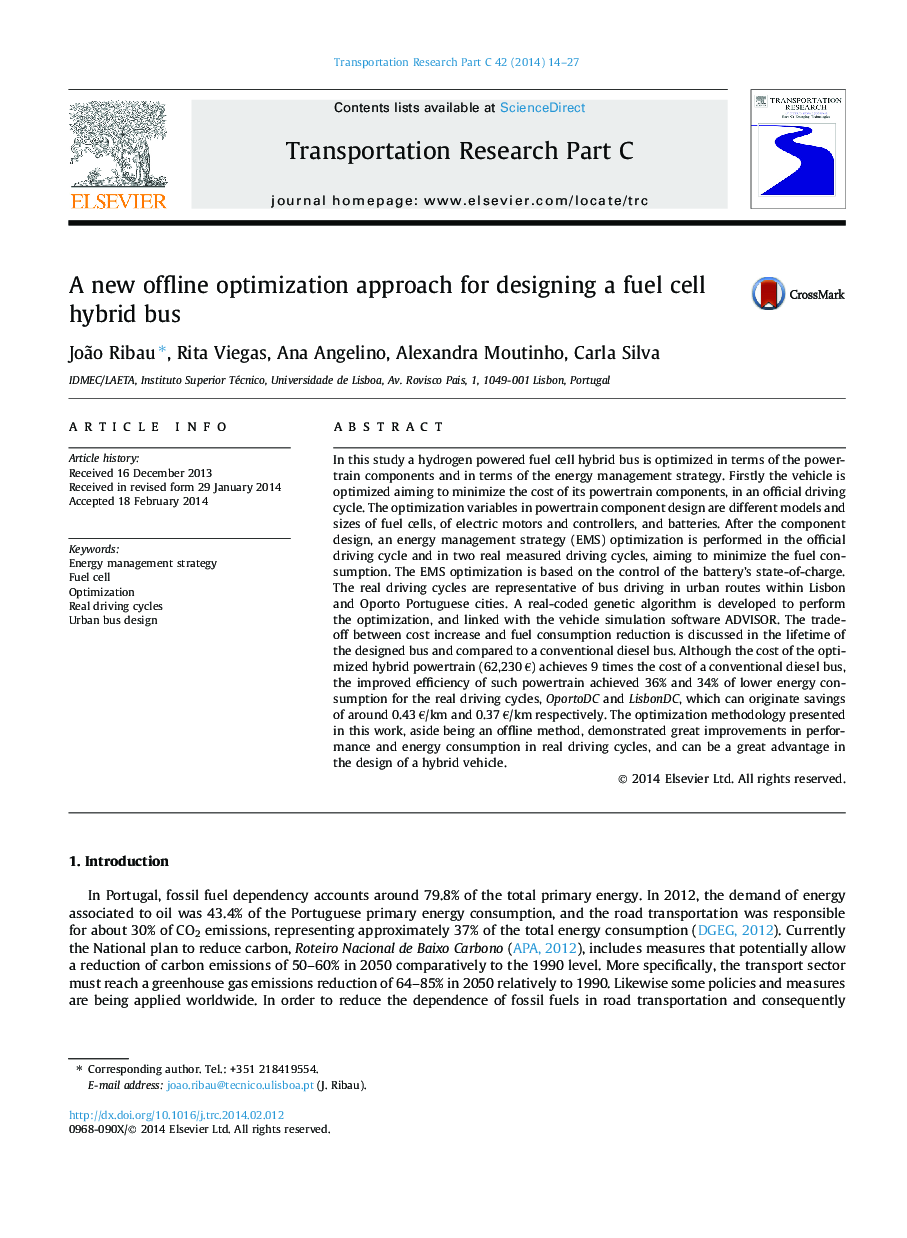| کد مقاله | کد نشریه | سال انتشار | مقاله انگلیسی | نسخه تمام متن |
|---|---|---|---|---|
| 525116 | 868891 | 2014 | 14 صفحه PDF | دانلود رایگان |
• Component design combined with EMS optimization proved to be effective.
• The battery is responsible for 70% of the optimized hybrid vehicle powertrain cost.
• The optimized bus has less 36% of energy consumption than the diesel ICEV bus.
• The alternative powertrain achieved 9 times more cost (62,230€) than the diesel bus.
• The optimized powertrain can originate savings of around 0.37–0.43 €/km/bus.
In this study a hydrogen powered fuel cell hybrid bus is optimized in terms of the powertrain components and in terms of the energy management strategy. Firstly the vehicle is optimized aiming to minimize the cost of its powertrain components, in an official driving cycle. The optimization variables in powertrain component design are different models and sizes of fuel cells, of electric motors and controllers, and batteries. After the component design, an energy management strategy (EMS) optimization is performed in the official driving cycle and in two real measured driving cycles, aiming to minimize the fuel consumption. The EMS optimization is based on the control of the battery’s state-of-charge. The real driving cycles are representative of bus driving in urban routes within Lisbon and Oporto Portuguese cities. A real-coded genetic algorithm is developed to perform the optimization, and linked with the vehicle simulation software ADVISOR. The trade-off between cost increase and fuel consumption reduction is discussed in the lifetime of the designed bus and compared to a conventional diesel bus. Although the cost of the optimized hybrid powertrain (62,230 €) achieves 9 times the cost of a conventional diesel bus, the improved efficiency of such powertrain achieved 36% and 34% of lower energy consumption for the real driving cycles, OportoDC and LisbonDC, which can originate savings of around 0.43 €/km and 0.37 €/km respectively. The optimization methodology presented in this work, aside being an offline method, demonstrated great improvements in performance and energy consumption in real driving cycles, and can be a great advantage in the design of a hybrid vehicle.
Journal: Transportation Research Part C: Emerging Technologies - Volume 42, May 2014, Pages 14–27
